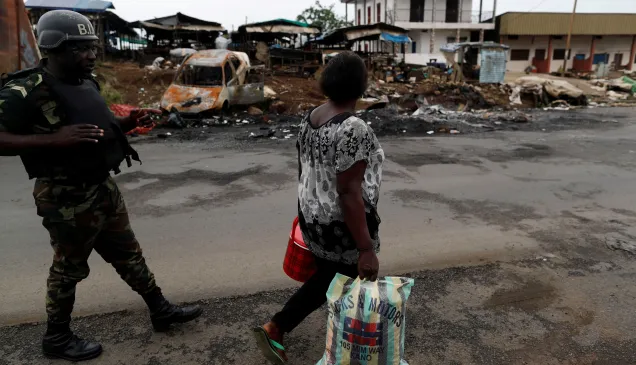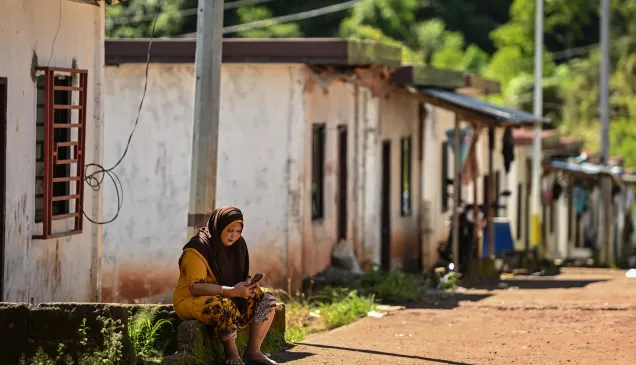Philippines: Unite to end tuberculosis
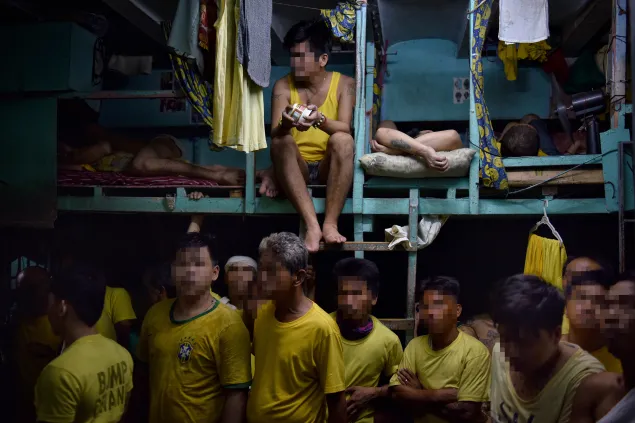
Extreme jail congestion in the Philippines contributes to the spread of TB, which is transmitted by air through coughing, sneezing and spitting by an infected person. But with the strong collaboration of authorities and non-government organizations, TB-control processes have improved over the years, reducing both TB mortality and infection rates.
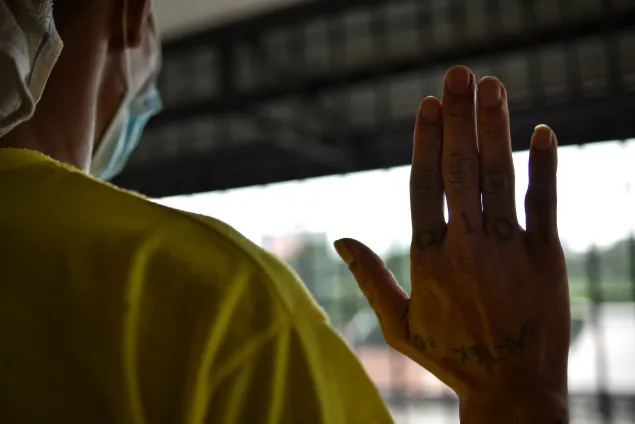
Quezon City Jail, November 2016
Persons affected with TB must be committed to take their medicines regularly. The support of their families and health officers is key to a successful treatment.
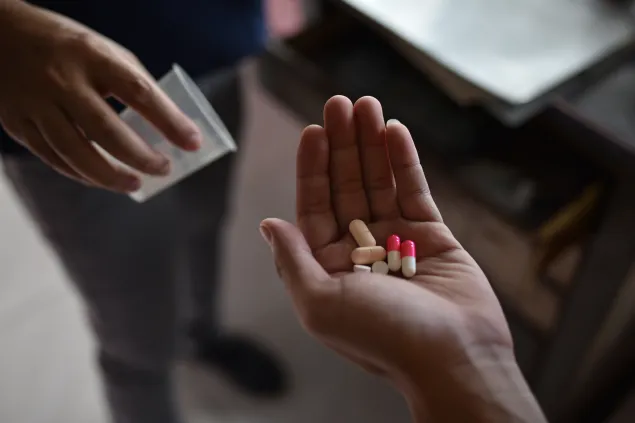
Quezon City Jail, November 2016
Coughing for more than 2 weeks is the main symptom of TB. The Directly Observed Short-course (DOTS) treatment ensures that TB patients take their medicines regularly for a certain period: 6-9 months for ordinary TB and 18-24 months for multi-drug resistant TB.
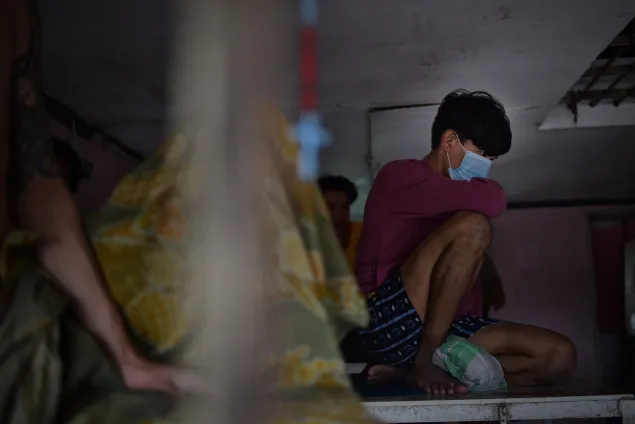
Quezon City Jail, November 2016
Compelling TB-affected detainees to wear masks and isolating them from other inmates helps prevent transmission inside the jail. Visitors and jail staff are also encouraged to wear masks to prevent infection.
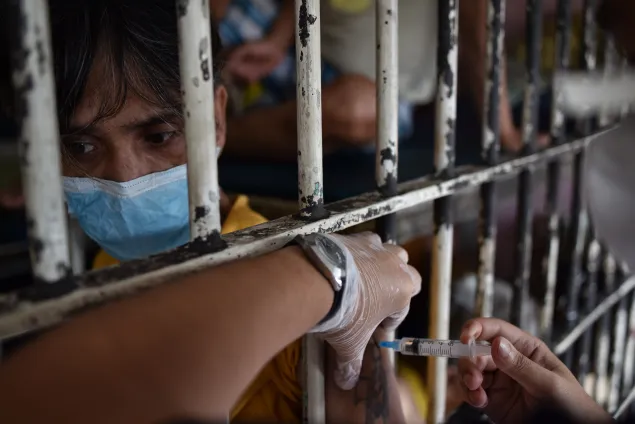
Quezon City Jail, November 2016
An inmate is injected with medication for his multi-drug resistant (MDR) TB. This severe type of TB usually occurs when a person infected with ordinary TB does not undergo the proper treatment (e.g. missed or incorrect medications). The bacteria becomes resistant to the antibiotics for ordinary TB and evolves into a drug-resistant form.
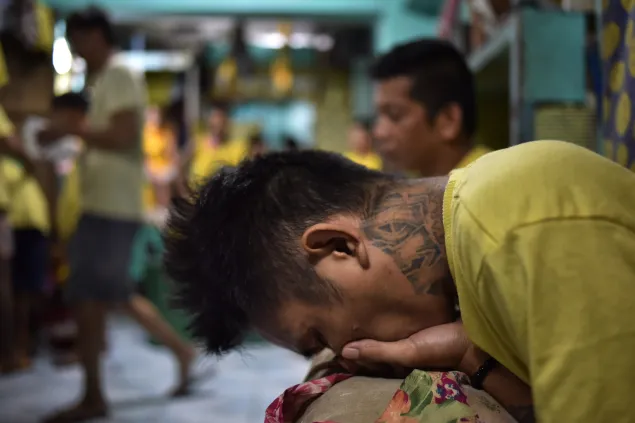
Quezon City Jail, November 2016
Some TB patients undergoing treatment may experience adverse effects such as feeling dizzy, having skin rashes or even flu-like symptoms. Remedies are available to manage the side effects to help patients complete their treatment.
Every day, 38 Filipinos die from tuberculosis (TB), a highly contagious but preventable disease. According to the 2016 Global Tuberculosis Report, the Philippines ranked eighth among the 30 countries with the largest number of TB cases in the world.
Overcrowding in places of detention facilitates the spread of TB even faster. The risk of TB disease in detention facilities can reach 23 times higher than in the general population, based on the recent World Health Organization's STOP TB Partnership Brief Report.
Stakeholders have been working together to eliminate TB in detention facilities by improving early-detection processes and access to TB care for inmates. The International Committee of the Red Cross (ICRC) has been supporting the national authorities to improve TB-control strategies through the evidence-based best practices from two pilot sites--the New Bilibid Prison and the Quezon City Jail.
In NBP for example, a TB mass screening for inmates will kick off today, World TB Day. Nearly 6,500 inmates in the medium-security compound will be screened for TB from March until June.
One missed inmate with TB can infect around 10 to 20 inmates, their visiting families or prison guards in a given year. To effectively control TB, every inmate counts. No one should be left behind.

